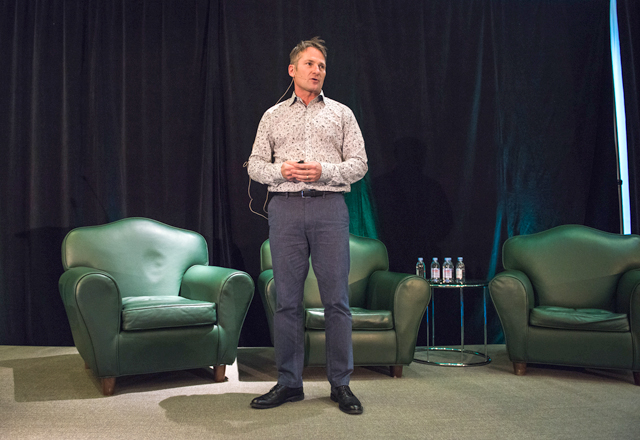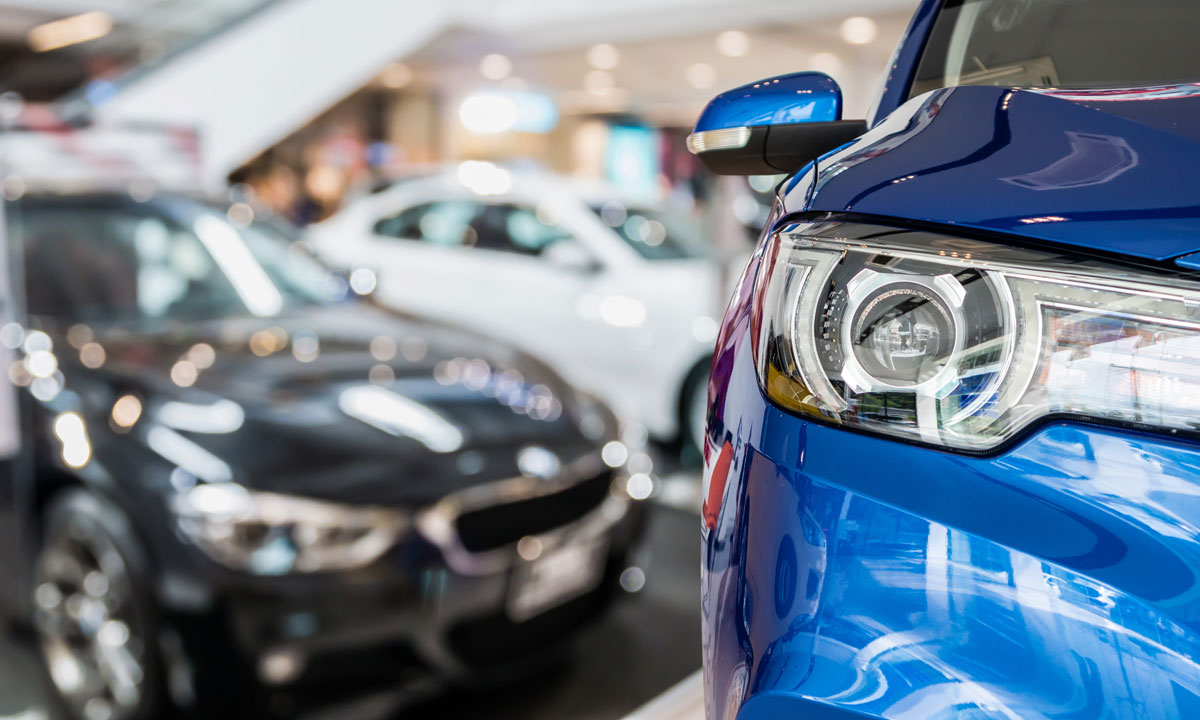SEE MORE COVERAGE OF CADA SUMMIT 2016

The retail world will never be the same, and companies that don’t adapt will suffer a fate similar to the former video retail giant Blockbuster — extinction — dealers were told by Douglas Stephens, an author and retail futurist at the 4th annual CADA Summit.
Stephens provided dealers a sobering view of how online shopping and superior customer experiences are forever changing customer expectations. He used Blockbuster as an example. The company didn’t respond to the arrival of Netflix’s video streaming service and was too late to adapt its business model.
In 2015, Netflix has an estimated $42-billion valuation with 75 million members and Blockbuster is gone. “Why didn’t Blockbuster get the change that was happening?” says Stephens. “Why are intelligent, sophisticated savvy people, often the ones that miss big change?”
Stephens presented a range of case studies and facts and figures to back up his somewhat dire view of the future of the physical retail store.
He says organizations sometimes suffer from “organizational imprinting.” This theory suggests that many organizations develop and maintain a perspective of the world that is largely shaped by the era in which they were formed.
If you rocketed to success in an era, you are likely to shape your future based on seeing the world through that lens. “That is their DNA,” he says. “We see it happening all the time.”
The lens shaping the auto industry was really the 1960s, he says. Times were good, and many things were consistent and predictable, such as:
- Mass media was very dependably effective;
- Brands and retailers controlled access to goods, services and information; and
- Physical stores/ dealerships were primarily a product distribution mechanism.
But that has all changed and if dealers miss the boat, they risk looking at the world much like Blockbuster did when Internet streaming arrived and Netflix wiped it out.
Something we all need to wrap our heads around, he says, is that there were $1.5-trillion dollars spent in online transactions in 2014. That’s a 23 per cent increase from a year earlier. Experts predict that fully 30 per cent of all spending will be online by 2025. It’s not just books and electronics.
On one day in China, a major retail spending day, 6,500 cars were sold online through the website: AliBaba.com
In the end, though, he reminded dealers that if they respond well to the changes that are coming, they stand to do better than ever before.
For example, the shopping experience is about more than just shopping to “buy more junk” to take home. “I think more often than not we go to a store or to a dealership for an experience.”
Why else are pure online companies like Amazon, Bonobos and even Google opening physical stores? They recognize they need a real human connection to their customers. “I believe we will have physical spaces well into the future,” says Stephens. “But everything about that physical distribution has to change.”
WHAT CAN BE DONE?
For starters, all retailers need to focus more on their story, and less on their store. “Great stores are the physical telling of a story about you, your brand and what it means,” he says. “But you have to look at your store as a different thing. Its chief purpose is to no longer distribute products — but rather to distribute experiences.”
The future retail experience will be less about just showing up to pick something up, and more about an immersive, entertaining and engaging experience. “Retail is moving from a spectator sport to something we participate in,” he says. “Your store will no longer the last part of the customer’s journey,” he says. Instead it could be where their journey with your product or brand begins.
NO MORE CLERKS
Stephens’ views on the future of retail, if they indeed come about, will also have profound implications for the people who work there. Many are at risk of being replaced by superior technology.
“It’s clearly the end of clerks,” says Stephens, describing them as the people who are just in the store to look up a price and locate inventory. “Now we are seeing robotics and other technologies making their way into a retail environment.”
He showed a video of an IBM technology called Watson. This computer program is able to process and provide remarkably accurate answers to voice queries from humans. Other emerging technologies will also provide a customer experience in a retail setting that is faster and superior to, well, the experience of searching for a clerk in a big box outlet to help you find something.
“People who routinely look up information and do routine mundane things will be replaced by this technology,” he says. “Does that mean the end of retail? No, it means the end of clerks.”
The people in retail who will be successful will be the brand ambassadors who are knowledgeable and passionate about products, who consult, and who give back. “It’s those people that will drive this,” says Stephens.
Stephens describes many current retail environments as: digital deserts. There are aisles of products, rows of vehicles, but very little digital content for them to interact and engage with.
Why wouldn’t dealers put up digital information and link it to their vehicles? Why wouldn’t they post which vehicles are most popular? Why not link the content to reviews, and bring other forms of third-party validation into the retail environment?
DON’T BENCHMARK VERTICALLY
To compare how they are doing, dealers need to look outside of their industry and study best practices anywhere.
Dealers who just think they are, “a bit better than the dealership around the block” are really at risk of missing the larger picture. “As the retail industry sleeps, Amazon is wide awake,” says Stephens. “The competition isn’t who you think they are. Your competition is probably someone you’ve never heard of.”
The retail environment needs to be less about conversion — how many cars did we sell today — and more about “how many converts did we make for our brand? How many minds did we blow today?” he says. “It’s all about their experience.”
The answer isn’t just all about technology, either. “Being creative, being innovative doesn’t mean rushing into technology,” says Stephens. “It’s about stepping back in a really sober, and honest way, and reviewing your customer experience in your stores, in your dealerships.”
To really succeed, dealers need to start thinking like insurgents, attacking their own industry, not acting as the defensive, big incumbent. “If a new idea doesn’t scare you a little — it’s not innovative.”
In his wide-ranging presentation, Stephens also explored the impact of the emerging world of mobile and the impact of always having a trusted advisor in the palm of your hand, and the replenishment economy, where devices connected to sensors will automatically be able to order replacement supplies — everything from coffee filters to laundry detergent.
It was a whirlwind tour of the future, and one that had many dealers talking afterwards.


















